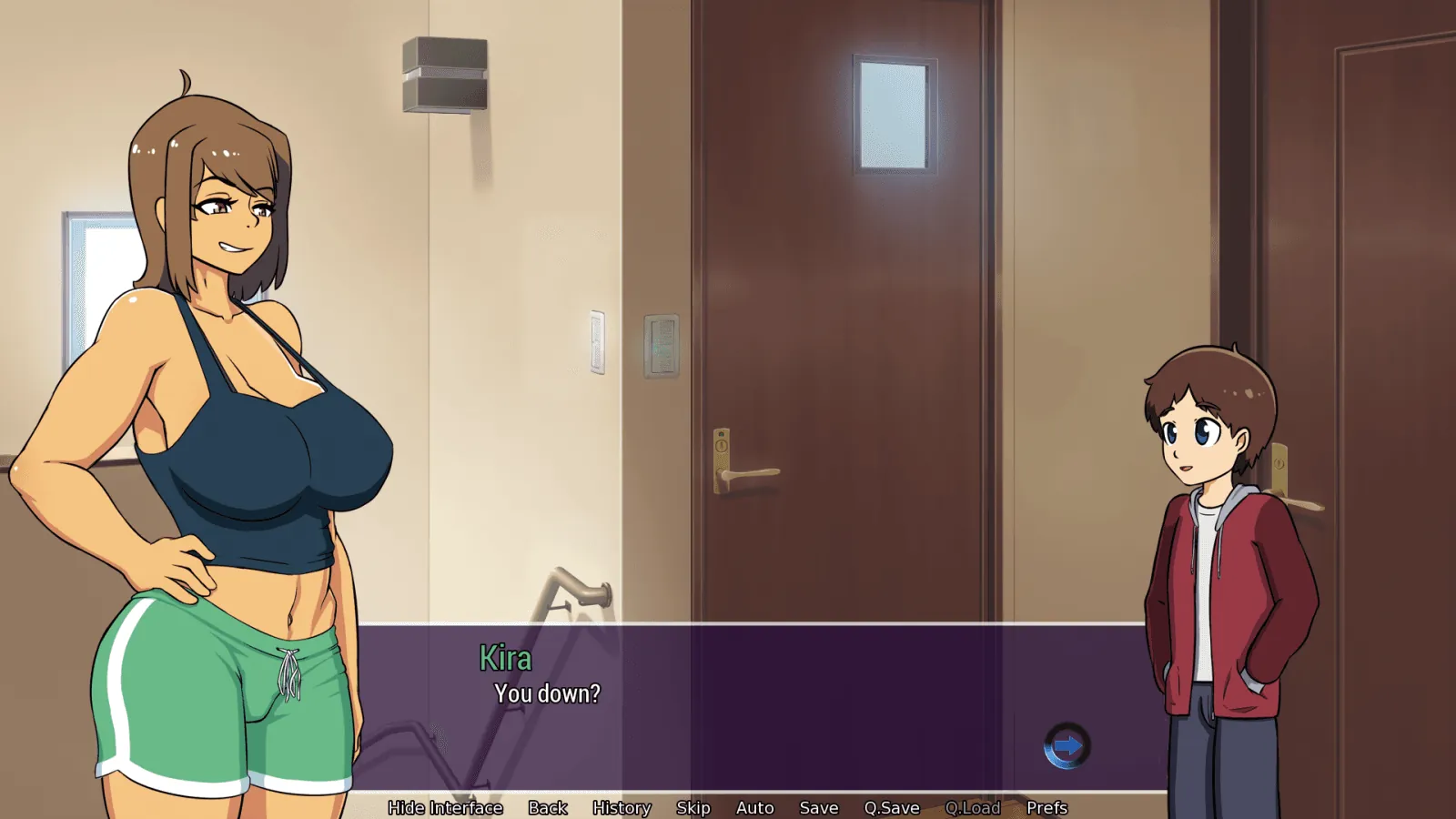
Rightful Ownership
Play Rightful Ownership
Rightful Ownership review
Exploring the themes and impact of Rightful Ownership
Rightful Ownership is a game that has sparked conversation and debate within the gaming community. Known for its bold approach to storytelling and its exploration of complex themes, Rightful Ownership stands out as a title that challenges players to think critically about digital ownership, consent, and personal boundaries. In this article, we’ll dive into the game’s background, its narrative choices, and the broader implications it raises for creators and players alike. Whether you’re familiar with Rightful Ownership or just curious about its place in gaming culture, this guide will help you understand what makes this game unique.
Understanding Rightful Ownership
Have you ever played a game that made you stop and think about what you truly own in the digital world? 🤔 That’s exactly what happened to me when I first booted up Rightful Ownership. This game isn’t just another title in your library; it’s a profound exploration of themes that hit close to home in our increasingly digital lives. I remember feeling a mix of curiosity and unease as I started, little knowing how it would reshape my perspective on digital ownership and personal control. If you’re tired of games that treat you like a passive observer, you’re in for a treat. Let’s dive into what makes this experience so special. 💫
What is Rightful Ownership?
At its core, Rightful Ownership is a narrative-driven adventure that places you in a near-future setting where every digital interaction—from your social media posts to your financial records—is up for grabs. You step into the shoes of a protagonist fighting to reclaim control over their digital identity, battling systems that exploit user data without consent. 🛡️ The basic premise revolves around making choices that directly impact what you “own” in the game’s universe, whether it’s virtual property, personal memories, or even your character’s autonomy.
What struck me immediately was how the game blends classic point-and-click mechanics with deep, moral dilemmas. Unlike many games where items are just collectibles, here, every asset feels personal. For example, early on, you’re tasked with recovering a family heirloom that’s been digitized and locked away—a moment that had me emotionally invested from the get-go. 😢 The game’s approach to digital ownership isn’t just a backdrop; it’s the heartbeat of the experience, making you question who really controls your online presence.
To give you a clearer picture, here’s a quick breakdown of the game’s key elements:
| Element | Description | Player Impact |
|---|---|---|
| Core Mechanics | Puzzle-solving and dialogue choices | Directly influences story outcomes |
| Central Theme | Reclaiming digital assets | Fosters a sense of personal stake |
| Unique Feature | Dynamic ownership system | Choices alter what you “possess” |
🎮 This framework ensures that you’re not just playing—you’re actively shaping your journey. If you want to get the most out of it, my advice is to pay close attention to the small details; the game rewards careful observation and thoughtful decision-making. 💡
The Game’s Narrative and Themes
The game narrative in Rightful Ownership is a masterclass in weaving complex ideas into an engaging story. It tackles consent in games head-on, making you constantly aware of the permissions you’re granting—or denying—as you progress. I’ll never forget a scene where my character was pressured to sign a vague user agreement; it mirrored real-life pop-ups we blindly accept, and it made me pause and reconsider my own habits. 🚦 This emphasis on personal agency means that your choices aren’t just cosmetic; they ripple through the entire plot, affecting relationships, access to resources, and even the ending you receive.
One of the most powerful themes is how the game explores the blurry line between virtual and real ownership. Through its storytelling in games, it poses questions like, “If you create something online, who does it truly belong to?” This isn’t just philosophical fluff; it’s integrated into gameplay. For instance, you might have to negotiate with NPCs who claim rights over your digital creations, forcing you to assert your ownership through dialogue or action. 💬 The narrative doesn’t preach but instead lets you live the consequences, which is why it resonates so deeply.
Pro tip: Approach each decision as if it were your own data on the line. This mindset amplifies the emotional weight and makes the themes hit harder.
Now, let me share a specific example that perfectly illustrates the game’s approach to digital ownership and consent in games. In a key moment, you’re exploring a corporate hub and stumble upon a server containing other characters’ private logs. The game presents you with a choice: access them to gain an advantage or respect their privacy and move on. I chose to peek, thinking it was just a game mechanic, but it triggered a chain of events where my character’s own data was later exposed. 🔓 This moment was a gut punch—it taught me that consent isn’t just about saying “yes” or “no”; it’s about understanding the ramifications of our actions, both in-game and out. It’s a brilliant way to make abstract concepts feel tangible and urgent.
Why Rightful Ownership Stands Out
So, what makes Rightful Ownership truly shine in a sea of similar titles? 🏆 It all boils down to its unique game themes and how they’re executed. While many games touch on dystopian futures or tech ethics, this one digs deeper by centering on personal agency in a way that feels both innovative and relatable. I’ve played countless story-driven games, but few have left me reflecting on my own digital footprint long after I put down the controller. 🌐 The storytelling in games here is subtle yet powerful, using environmental cues and character arcs to reinforce its messages without heavy-handed exposition.
Another standout aspect is how it empowers players. Unlike linear narratives that funnel you down a single path, Rightful Ownership embraces branching scenarios that honor your input. For example, in one playthrough, I decided to form alliances based on mutual respect for digital rights, which unlocked entirely new story threads I hadn’t seen before. 🔄 This level of personal agency ensures that no two experiences are alike, encouraging replayability and deeper engagement.
Here’s a comparison to highlight its uniqueness:
| Feature | Rightful Ownership | Common Game Trends |
|---|---|---|
| Theme Depth | Explores digital ethics and consent | Often focuses on action or fantasy |
| Player Influence | High, with moral and practical choices | Limited to predefined outcomes |
| Emotional Impact | Prompts real-world reflection | Primarily entertainment-driven |
💡 If you’re looking to get the most out of this game, I recommend playing it in sessions where you can fully immerse yourself. Take notes on your decisions—you might be surprised how they mirror your own values. 😊
In the end, Rightful Ownership isn’t just a game; it’s a conversation starter about our digital lives. Its focus on digital ownership, consent, and agency sets a new standard for what interactive media can achieve. Whether you’re a casual player or a storytelling enthusiast, this experience will leave you thinking—and maybe even acting—differently about the data you call your own. 🌟
Rightful Ownership is more than just a game—it’s a thought-provoking experience that challenges players to consider the meaning of ownership, consent, and personal boundaries in a digital world. By exploring these themes through its narrative and gameplay, Rightful Ownership invites players to reflect on their own values and the choices they make. If you’re interested in games that push boundaries and spark meaningful conversations, Rightful Ownership is definitely worth exploring.
















